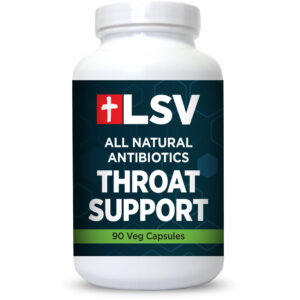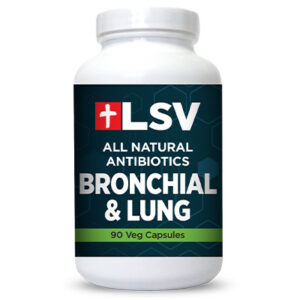Our Company
LSV
SINCE 1992
Founded in 1992, in Winter Park, Florida – LSV Vitamins has been the leader in All Natural Antibiotic supplement sales for over 30 years in the United States.

Red clover, a flowering plant with a vibrant bloom, has a long history of use in traditional medicine for various ailments. Modern science is now delving into its potential health benefits, with a particular focus on its possible role in inflammation management. While more research is needed, red clover offers an intriguing glimpse into natural approaches alongside conventional therapies.
Red clover is rich in isoflavones, a class of plant compounds with a similar structure to estrogen. These isoflavones, particularly biochanin A and formononetin, are believed to be the key players behind red clover’s potential health effects, including its anti-inflammatory properties [1].
Research suggests that red clover may offer some benefits for inflammation management:
While the initial research on red clover and inflammation is promising, there are important factors to consider:
Based on current research, red clover shows some promise as a natural approach to supporting inflammation. However, it should not be seen as a replacement for medication prescribed by a doctor.
If you’re considering using red clover for inflammation management, discuss it with your doctor first. They can assess your individual needs and advise you on whether red clover is a suitable option and recommend appropriate dosages. Red clover comes in various forms, so discussing the best option for you is crucial.
As research on red clover progresses, we may gain a deeper understanding of its potential role in managing inflammation. Future studies may shed light on optimal dosages, specific applications for different inflammatory conditions, and the exact mechanisms by which red clover exerts its anti-inflammatory effects.
LS Vitamins – Since 1992
See All of our effective All Natural Products Here
All Natural Antibiotics Cold & Flu
All Natural Antibiotics Sinus Support
All Natural Antibiotics Teen Support
All Natural Antibiotics Tooth & Gum
All Natural Antibiotics Bronchial & Lung Support
All Natural Antibiotics Throat Support
For Over 30 Years, we have 3rd Party Tested each and every nutrient that go into all of our products: Purity & Effectiveness is how are product continually works for Tens of Thousands of our Customers.
By no means are we at LSV Vitamins saying do not take what your doctor prescribes, we are just saying that we have an alternative for those who cannot take Antibiotics, afraid one of the many side effects, or simply want to try an all-natural alternative. We have a large number of people (over 100,000) who take and have taken this at the first sign of a problem, and it works well. As always, consult your doctor.
*Disclaimer: None of the above statements have been evaluated by the FDA. These products are not intended to diagnose, treat, cure or prevent any disease. As always, consult your physician before taking any supplements. LSV. Individual results may vary.
 Throat Support - Natures Antibiotics
Throat Support - Natures Antibiotics
 Bronchial & Lung Support - Natures Antibiotics
Bronchial & Lung Support - Natures Antibiotics
LSV
SINCE 1992
Founded in 1992, in Winter Park, Florida – LSV Vitamins has been the leader in All Natural Antibiotic supplement sales for over 30 years in the United States.